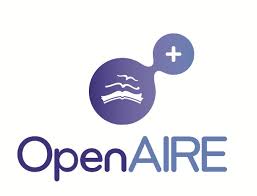OpenAIRE2020: A New Horizon for Open Science
 The wealth of the European Union's scientific research is to be made open to all. A year after the start of the EC's Horizon 2020 framework programme, OpenAIRE enters a new phase of funding with a continuation project: OpenAIRE2020, starting in January 2015. The initiative will implement the H2020 Open Access policies and mandates for publications and will be one of the key European infrastructures supporting the EC's Research Data Pilot.
The wealth of the European Union's scientific research is to be made open to all. A year after the start of the EC's Horizon 2020 framework programme, OpenAIRE enters a new phase of funding with a continuation project: OpenAIRE2020, starting in January 2015. The initiative will implement the H2020 Open Access policies and mandates for publications and will be one of the key European infrastructures supporting the EC's Research Data Pilot.
A pan-European Open Scholarship Initiative
50 partners, from all EU countries, and beyond, will collaborate to work on this large-scale initiative that aims to promote open scholarship and substantially improve the discoverability and reusability of research publications and data. The initiative brings together professionals from research libraries, open scholarship organisations, national e-Infrastructure and data experts, IT and legal researchers, showcasing the truly collaborative nature of this pan-European endeavor. A network of people, represented by the National Open Access Desks (NOADs), will organise activities to collect H2020 project outputs, and support research data management. Backing this vast outreach, is the OpenAIRE platform, the technical infrastructure that is vital for pulling together and interconnecting the large-scale collections of research outputs across Europe. The project will create workflows and services on top of this valuable repository content, which will enable an interoperable network of repositories (via the adoption of common guidelines), and easy upload into an all-purpose repository (via Zenodo).
OpenAIRE2020 will assist in monitoring H2020 research outputs and will be a key infrastructure for reporting H2020's scientific publications as it will be loosely coupled to the EC's IT backend systems. The EC's Research Data Pilot will be supported through European-wide outreach for best research data management practices and Zenodo, which will provide long-tail data storage. Other activities include: collaboration with national funders to reinforce the infrastructure's research analytic services; an APC Gold OA pilot for FP7 publications with collaboration from LIBER; novel methods of review and scientific publishing with the involvement of hypotheses.org; a study and a pilot on scientific indicators related to open access with CWTS's assistance; legal studies to investigate data privacy issues relevant to the Open Data Pilot; international alignment with related networks elsewhere with the involvement of COAR.
About OpenAIRE
OpenAIRE is a collaborative European effort working towards a common goal to bring a change in realising open access for the benefit of innovation, industry and society. All partners welcome the effort to truly make open access a global reality during this pivotal phase in scholarly communication.
OpenAIRE currently operates an interoperable and validated network of more than 520 repositories and OA journals, integrating more than 9 million OA publications and 1,000 datasets, with 50,000 organizations and 30,000 projects from two funders. It has identified over 100,000 FP7 publications from about half the 26,000 FP7 projects, and offers literature-data integration services.
OpenAIRE2020 Information
EC budget: 13.132.500 Euros
Starts: January 1st, 2015
Duration: 3.5 years
Contact: Prof. Mike Chatzopoulos
- Tags:
- Association of Europan Research Libraries (LIBER)
- Confederation of Open Access Repositories (COAR)
- CWTS
- discoverability of research publications
- e-Infrastructure
- European Union
- FP7 publications
- H2020 Open Access policies and mandates for publications
- Horizon 2020 framework programme
- hypotheses.org
- interoperable network of repositories
- long-tail data storage
- Mike Chatzopoulos
- National Open Access Desks (NOADs)
- Open Data Pilot
- open scholarship
- open scholarship organisations
- open science
- OpenAIRE
- OpenAIRE platform
- OpenAIRE2020
- pan-European Open Scholarship Initiative
- research data management
- research libraries
- reusability of research publications
- scientific research
- Zenodo
- Login to post comments